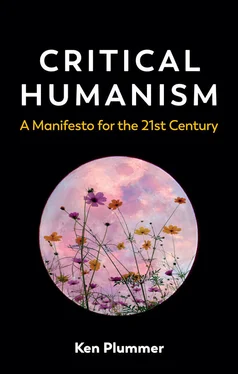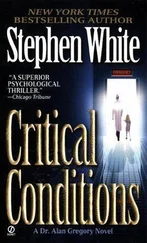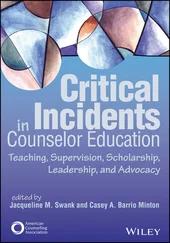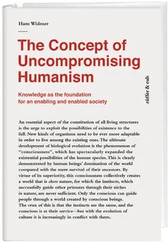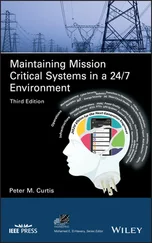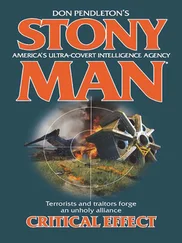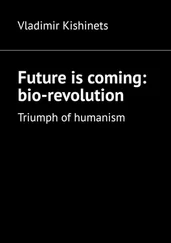24 24 See Pew Research Center, ‘The Changing Global Religious Landscape’, 5 April 2017: https://www.pewforum.org/2017/04/05/the-changing-global-religious-landscape/
25 25 Ulrich Beck, A God of One’s Own: Religion’s Capacity for Peace and Potential for Violence (Polity, 2010).
26 26 See Mark Juergensmeyer, Dinah Griego and John Soboslai, God in the Tumult of the Global Square: Religion in Global Civil Society (University of California Press, 2015). See also Michael Jordan, In the Name of God: Violence and Destruction in the World’s Religions (Sutton Publishing, 2006); Oliver Roy, Holy Ignorance: When Religion and Culture Part Ways, trans. Ros Schwartz (Hurst, 2010).
27 27 Hans Küng and Karl-Josef Kuschel, eds, Global Ethic: The Declaration of the Parliament of the World’s Religions (Continuum, 1993).
28 28 See Sandy and Jael Bharat, A Global Guide to Interfaith: Reflections from Around the World (O Books, 2007). An illustration of this at work can be found in Kwok Pui-Lan, Globalization, Gender and Peacebuilding: The Future of Interfaith Dialogue (Paulist Press, 2012).
29 29 Dalai Lama, Beyond Religion: Ethics for a Whole World (Houghton Mifflin Harcourt, 2011); Daisaku Ikeda, A New Humanism (Tauris, 2010); Felix Unger and Daisaku Ikeda, The Humanist Principle: On Compassion and Tolerance (Tauris, 2016).
30 30 Beck, A God of One’s Own, p. 197.
31 31 See ‘For Darwin Day, 6 Facts About the Evolution Debate’: https://www.pewresearch.org/fact-tank/2019/02/11/darwin-day/; 18 per cent of Americans reject evolution entirely, saying humans have always existed in their present form.
32 32 See Elizabeth Kolbert, The Sixth Extinction: An Unnatural History (Bloomsbury, 2014).
33 33 David Reich, Who We Are and How We Got Here: Ancient DNA and the New Science of the Human Past (Oxford University Press, 2018); Steven Rose, Lifelines: Life Beyond the Gene (Vintage, 2005); Adam Rutherford, A Brief History of Everyone Who Ever Lived: The Stories in Our Genes (Weidenfeld & Nicolson, 2017).
34 34 Cox and Cohen, Wonders of the Universe, p. 3.
35 35 Compare the rather sober Martin Rees, On the Future: Prospects for Humanity (Princeton University Press, 2018) with the rather extravagant Michio Kaku, The Future of Humanity: Terraforming Mars, Interstellar Travel, Immortality, and Our Destiny Beyond Earth, 2nd edn (Penguin, 2019).
36 36 This is a key argument in both Cox and Cohen, Wonders of the Universe, and Harari, Sapiens.
37 37 This is life during the age of AI and more. See sociologist Steve Fuller’s Humanity 2.0: What It Means to be Human, Past, Present and Future (Palgrave Macmillan, 2011) and physicist Max Tegmark’s Life 3.0: Being Human in the Age of Artificial Intelligence (Allen Lane, 2017).
38 38 See, for example, Angela Saini, Superior: The Return of Race Science (Fourth Estate, 2020); Jonathan Marks, Is Science Racist? (Polity, 2017).
39 39 Nikolas Rose, The Politics of Life Itself: Biomedicine, Power and Subjectivity in the Twenty-First Century (Princeton University Press, 2001), p. 105; see also Raymond Tallis, Aping Mankind: Neuromania, Darwinitis and the Misrepresentation of Humanity (Routledge, 2011).
40 40 Iain Wilkinson and Arthur Kleinman, A Passion for Society: How We Think about Human Suffering (University of California Press, 2016), p. 196.
41 41 See the history by Michael Barnett, Empire of Humanity: A History of Humanitarianism (Cornell University Press, 2013). More widely, it is captured well in Jeremy Rifkin’s The Empathic Civilization: The Race to Global Consciousness in a World in Crisis (Polity, 2010), and Natan Sznaider’s The Compassionate Temperament: Care and Cruelty in Modern Society (Rowman & Littlefield, 2000). For a much more critical appraisal, see Didier Fassin, Humanitarian Reason: A Moral History of the Present (University of California Press, 2011).
42 42 Lionel Trilling, The Liberal Imagination (New York Review of Books, 1950), cited in David J. Rothman, ‘The State as Parent’, in Willard Gaylin, ed., Doing Good: The Limits of Benevolence (Random House, 1978), p. 72.
43 43 Tony Vaux, The Selfish Altruist (Earthscan, 2001), p. 203.
44 44 Philip Cunliffe, Cosmopolitan Dystopia: International Intervention and the Fall of the West (Manchester University Press, 2020).
45 45 Fassin, Humanitarian Reason, p. 3. A useful lecture given by Fassin, ‘Critique of Humanitarian Reason’, can be found at https://video.ias.edu/critique-of-humanitarian-reason.
46 46 It can be found at https://www.un.org/en/universal-declaration-human-rights/.
47 47 See two very positive evaluations of human rights by Kathryn Sikkink, The Justice Cascade: How Human Rights Prosecutions Are Changing World Politics (Norton, 2013), and Evidence for Hope: Making Human Rights Work in the 21st Century (Princeton University Press, 2017).
48 48 See Lawrence M. Friedman, The Human Rights Culture: A Study in History and Context (Quid Pro, 2011).
49 49 See William F. Felice, Taking Suffering Seriously: The Importance of Collective Human Rights (State University of New York Press, 1996).
50 50 For example: although indigenous rights may be officially recognized, in practice many problems remain. See Colin Samson, The Colonialism of Human Rights: Ongoing Hypocrisies of Western Liberalism (Polity, 2020). Similar problems remain for each category listed in this Box.
51 51 Stephen Hopgood, The Endtimes of Human Rights (Cornell University Press, 2013), p. ix; see also Cunliffe, Cosmopolitan Dystopia; Samuel Moyn, Not Enough: Human Rights in an Unequal World (Belknap, 2019). Hopgood distinguishes between human rights (lower case) as grounded activism, which is important and will always be with us, and a Human Rights (upper case) – a large global structure more like a worldwide church, of which he is very critical. By contrast, Alison Brysk provides the positive case for rights in The Future of Human Rights (Polity, 2018).
52 52 See Chandra Talpade Mohanty, Feminism without Borders: Decolonizing Theory, Practicing Solidarity (Duke University Press, 2003); Jasbir K. Puar, Terrorist Assemblages: Homonationalism in Queer Times (Duke University Press, 2007).
53 53 See Robert W. Fuller and Pamela A. Gerloff, Dignity for All: How to Create a World Without Rankism (Berrett-Koehler, 2008).
54 54 Christian Smith, What Is a Person? Rethinking Humanity, Social Life, and the Moral Good from the Person Up (University of Chicago Press, 2011), p. 435. Smith argues that it is impossible not to be an essentialist. There is always an essential core hanging around somewhere or we could not even talk about such things. He builds his personalist account (a theory held by a distinctive group of largely Catholic theorists) with dignity and agentic human purpose at the core. See also Chapter 4 of Phillips, The Politics of the Human for a critical commentary of essentialist ideas of dignity. Maria Kronfeldner’s What’s Left of Human Nature? A Post-Essentialist, Pluralist and Interactive Account of a Contested Concept (MIT Press, 2018) is a rigorous and systematic philosophical development of modern non-essentialist ideas around human nature.
55 55 Martha C. Nussbaum’s ideas can be found in, especially, Cultivating Humanity: A Classical Defense of Reform in Liberal Education (Harvard University Press, 1998); Creating Capabilities: The Human Development Approach (Harvard University Press, 2011). Much of her recent work is concerned with taking seriously the importance of emotions in social, ethical and political life. For examples, see, Upheavals of Thought: The Intelligence of Emotions (Cambridge University Press, 2001); Hiding from Humanity: Disgust, Shame, and the Law (Princeton University Press, 2004); Frontiers of Justice: Disability, Nationality, Species Membership (Harvard University Press, 2006); and Political Emotions: Why Love Matters for Justice (Harvard University Press, 2013).
Читать дальше
